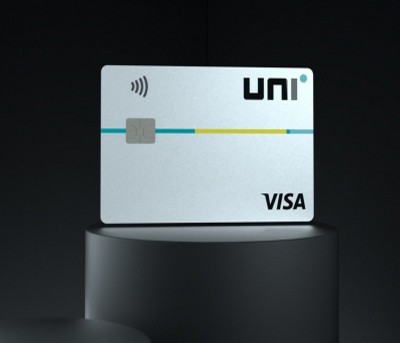
New Delhi, As the Indian fintech industry embraces Cloud-based technologies for the credit cards, buy now, pay later (BNPL) and credit EMIs market to deliver delightful experiences to the customers, Uni Cards with its unique offerings has created a niche space among the Indian users.
With the first-of-a-kind-innovation called aPay 1/3rd Card, the users can split their monthly spends into three parts over three months at no extra charges. And they get 1 per cent rewards if they pay in one month.
Abhishek Gupta, VP of Engineering, UNI Cards, told IANS that the Uni Pay 1/3rd card is very popular among their customers and within nine months of operations, they are seeing monthly disbursals of over Rs 500 crore.
Here are the excerpts from the interview:
Q: You offer better flexibility and simplicity in repayment to consumers which traditional credit cards do not. Tell us a little more about this and the market share you have been able to capture.
A: With the Uni Pay 1/3rd card, customers can split all their transactions into three parts to be paid over 3 months at no extra cost. Alternatively, the user can choose to pay the entire amount in 1 month and get 1 per cent cash back. This kind of flexibility is unique to our product. We only offer this product to the right customers based on prudent underwriting, done by our partners.As a result, the Uni Pay 1/3rd card is very popular among our customers and within 9 months of operations, we are seeing monthly disbursals of over Rs 500 crore.
Q: What are the risks that customers need to understand with these cards?
A: While our products provide flexibility and credit to customers for their needs, like any other credit card product one needs to maintain financial discipline and ensure that they are making their bill repayments on time. Any delayed payment or non-payment of dues will result in a negative impact on the customer's bureau profile and will impact future creditworthiness/credit accessibility. Our team takes the utmost care in ensuring that we proactively communicate our fees and charges to our customers in every billing cycle to ensure they are well informed.
Q: How are you leveraging AI/ML, analytics etc. to manage risk and determine the creditworthiness of a potential UNI card holder?
A: Uni utilises a granular credit underwriting strategy that enables customer-level decisioning. This is made possible through sophisticated in-house ML models that have superior performance and accuracy compared to existing solutions in the market. In addition to underwriting, deep analytics & ML models are also utilised to identify bad pockets in the portfolio which are pruned on an immediate basis.
Q: What are some of the emerging technologies that you are most excited about over the medium term (3-5 years) in this space?
A: Credit underwriting, security, fraud detection and default prevention are key to any lending focussed fintech's success. After AI and Machine Learning, IoT and blockchain will be game-changers for fintech. Another interesting technology which can make things a lot easier for fintech is RegTech.
Q: What does cloud technology allow you to do better?
A: Cloud helps us focus on what is most mission-critical i.e. building products and features for our customers, while they take care of all the distractions related to building, managing and scaling a self-owned data centre. The availability of enterprise solutions for managed compute, databases, caches, queues, and storage allows the team to build releases and scale faster. These managed solutions allow us to build solutions for scale with speed, agility and resiliency. Because of AWS and its managed services we were able to roll out our changes production within days of writing code. With our own data centers it wouldn't have been possible even in weeks.
At Uni, since day zero, we have prioritised building the right platform which is secure, scalable, available, reliable and performant. AWS has readymade solutions for almost everything which is ready to use in just a few clicks. Additionally, the security provided through guard duty, AWS config, shield, WAF etc. is unparalleled.
Specifically for UNI where we have seen exponential growth in traffic since launch, we needed large hardware that AWS has been able to deliver. We never had to worry about creating this. In terms of cost reductions, reserved compute has helped us reduce compute cost by 50 per cent.


.jpeg)

